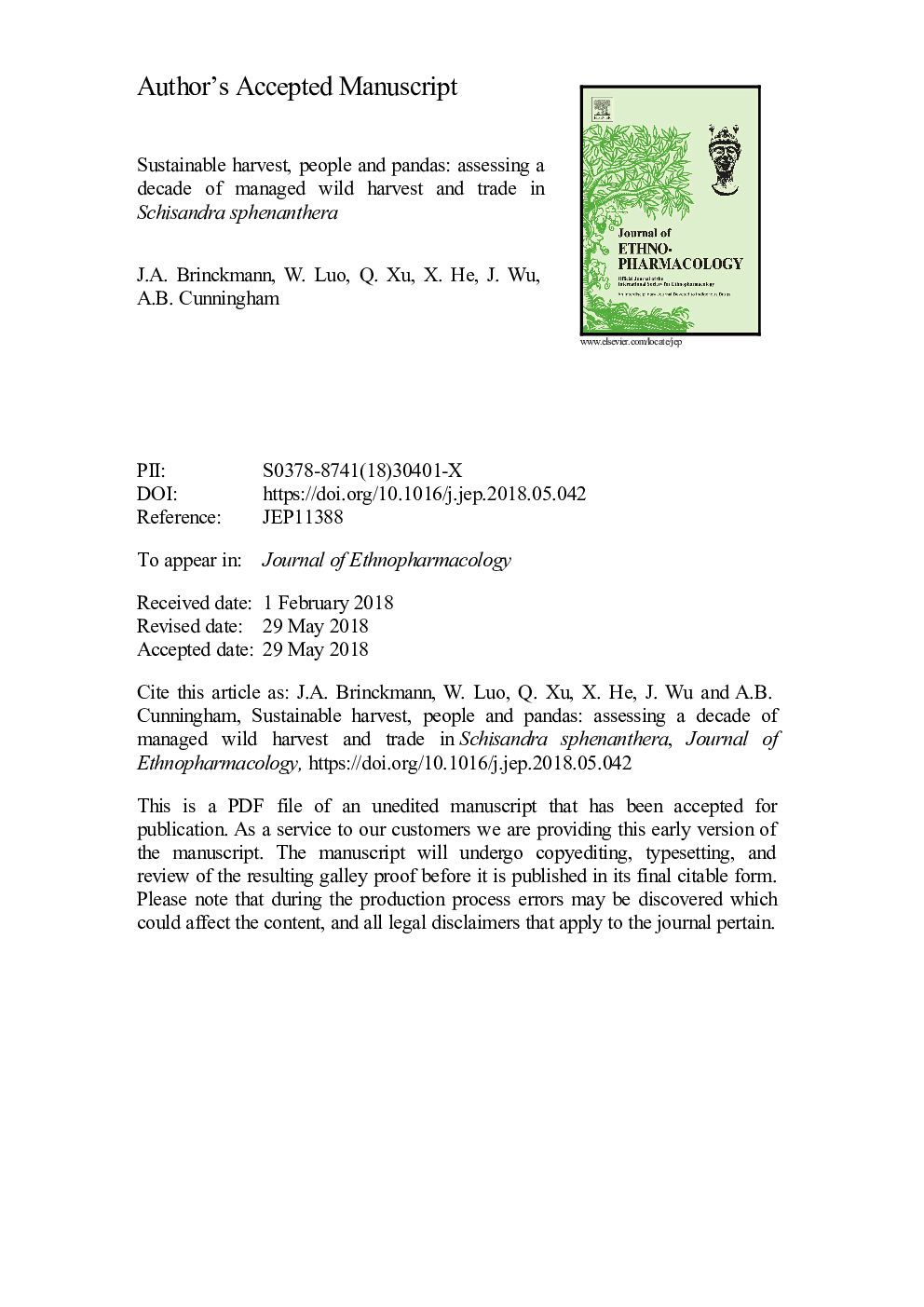| Article ID | Journal | Published Year | Pages | File Type |
|---|---|---|---|---|
| 8532233 | Journal of Ethnopharmacology | 2018 | 23 Pages |
Abstract
A decade after the project first started, there is strong evidence for the pro-conservation micro- and small enterprise model. For example, through the establishment of a TCM cooperative with members in 22 villages engaged in sustainable resource management, harvesting and equitable trade of TCM ingredients with organic and panda-friendly branding. The project benefited from multi-disciplinary collaboration of experts in ethnoecology, TCM, panda biology and habitat, nature conservation, sustainability standards and international trade. Inviting interested companies at the start enabled a transition from a funded-project to annual contracts for sustainably harvested TCM herbal drugs. At end of project (2011), the companies and NGOs remained engaged and motivating for completion of activities started during the project. Major eventual outcomes rooted in the initial project included Chinese government authorisation of the FairWild Standard (2016) and Giant Panda Friendly Products Standard (2017).
Keywords
IMOWorld Wide Fund for NatureCNYUNDPintegrated conservation and development projectIUCNNOPUSDAWWFTCMSfMICDPMEPPESInternational Union for Conservation of NatureUnited Nations Development ProgrammeBiodiversityUnited States Department of AgricultureCertificationtraditional Chinese medicineSustainable forest managementBrandingPayment for environmental services
Related Topics
Health Sciences
Pharmacology, Toxicology and Pharmaceutical Science
Pharmacology
Authors
J.A. Brinckmann, W. Luo, Q. Xu, X. He, J. Wu, A.B. Cunningham,
